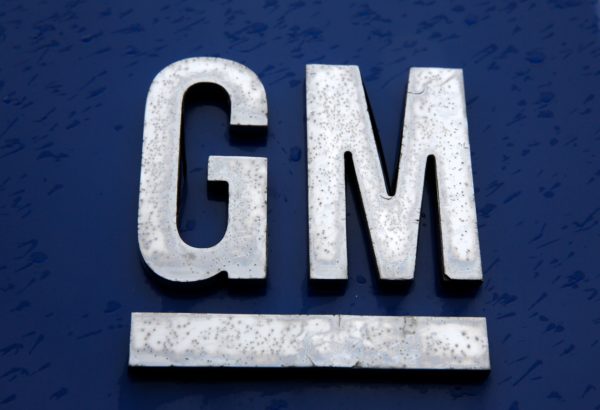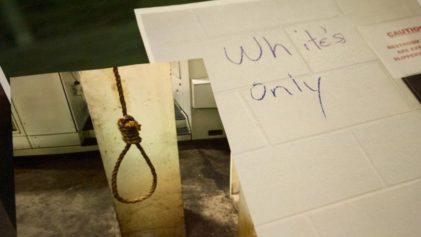Facing ongoing litigation from workers who alleged General Motors allowed racial incidents to occur, the vehicle manufacturer is now offering a hefty award to find the persons who left racist graffiti and nooses in an Ohio plant.
The incidents occurred two years ago at GM’s Toledo location, and the company’s $25,000 offer, which it told the Detroit Free Press was posted in January, comes less than a month after the attorney representing the Black employees said workers still face racial harassment.

A sign is viewed at the General Motors Detroit-Hamtramck Assembly as they announced the closing of multiple facilities including this one on November 26, 2018, in Detroit, Michigan. (Photo: JEFF KOWALSKY /Getty Images)
“We have zero tolerance for discrimination, and we’re doing everything we can to identify the culprit. This is another step we’ve taken, working with police to intensify the investigation,” GM said in a statement to the newspaper Feb. 11. “We’re outraged that anyone would face threats, and our hearts go out to anyone affected by this bigotry.”
A CrimeStoppers program administered by Toledo police and the FBI is offering the reward, according to GM.
Nine Black workers at the powertrain plant filed a lawsuit against the automaker in September citing a host of racist incidents that date back to March 2017. That’s when the noose was discovered. The filing also states that racist graffiti littered the plant’s walls, including some reading, “Whites Only” next to a men’s restroom.
Last month, CNN published a report that detailed the racism the plant workers encountered.
“I used to have to pray. Literally, ‘Lord protect me,’” Marcus Boyd, a former supervisor at the plant, said to the outlet. “It was like being at war.”
Boyd recalled being called the N-word by his subordinates and noted how Black workers were frequently called “monkeys” or told to “go back to Africa.”
After the report emerged, Toledo Mayor Wade Kapszukiewicz issued a statement saying he “shared the same outrage that many of our residents and visitors felt when I heard the stories of the hostile work environment described during the news story.”
Kapszukiewicz said he met with several leaders, heads of GM’s North America division and civil rights activist Jesse Jackson.
“As a top employer and economic driver for our city and region, GM has made important contributions to our community,” the mayor’s statement concluded. “I am also well aware that these types of incidents create the wrong perception of our community. It is my hope to work with GM leadership to ensure a workplace that is safe and supportive to all of their employees and customers, and partner with them to ensure our residents and visitors feel that our community is welcoming.”
Even before the lawsuit, however, up to three nooses have been found and reported to the Ohio Civil Rights Commission.
The commission decided “GM engaged in unlawful discriminatory practices.” It also rejected GM’s request in April for reconsideration and directed GM to “immediately provide its employees with an environment free of harassment, intimidation and hostility.”
GM was also ordered to appoint an equal employment officer to train employees on anti-discrimination laws and write suitable policies and procedures for discussing and reviewing any future issues. Additionally, the company is required to regularly host annual training sessions. The information being taught at those meetings must be submitted to the Ohio Civil Rights Commission ahead of time.
“We did disagree with the commission’s findings,” said Pat Morrissey, GM’s spokesman, to the paper. “We fully cooperated with the investigation.”


